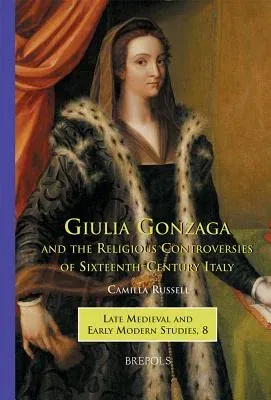Camilla Russell
(Author)Giulia Gonzaga and the Religious Controversies of Sixteenth-Century ItalyHardcover, 1 May 2006

Temporarily out of stock
Free Delivery
Cash on Delivery
15 Days
Free Returns
Secure Checkout

Part of Series
Brepols Late Medieval and Early Modern Studies
Print Length
237 pages
Language
ItalianEnglish
Publisher
Brepols Publishers
Date Published
1 May 2006
ISBN-10
2503518079
ISBN-13
9782503518077
Description
Product Details
Author:
Book Format:
Hardcover
Country of Origin:
US
Date Published:
1 May 2006
Dimensions:
24.56 x
16.66 x
2.11 cm
Genre:
Medieval (500-1453) Studies
ISBN-10:
2503518079
ISBN-13:
9782503518077
Language:
Italian
English
Location:
Turnhout
Pages:
237
Publisher:
Weight:
607.81 gm